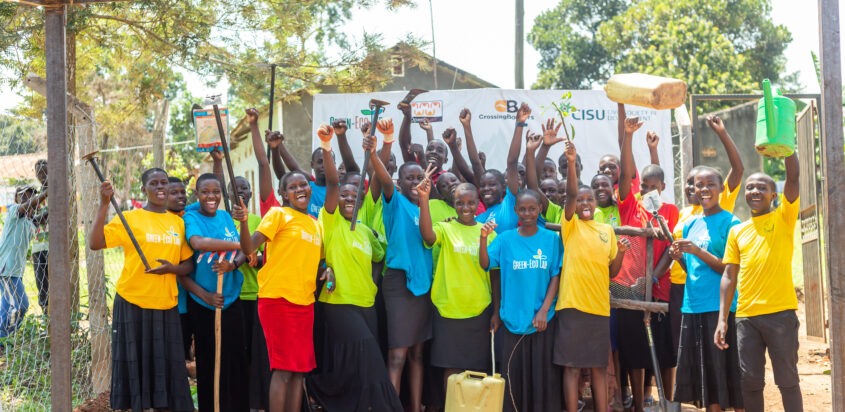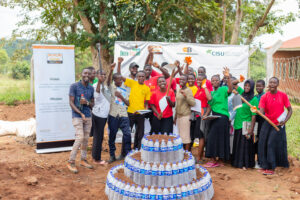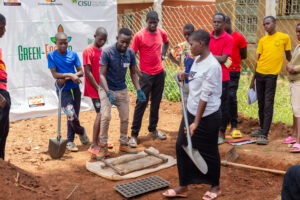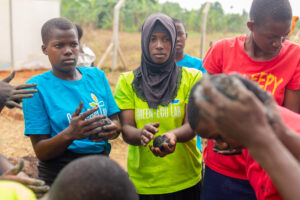
In the relentless battle against climate change, Uganda finds itself on the frontline, grappling with the harsh realities of environmental disturbances. From scorching temperatures to erratic weather patterns, the impacts threatening livelihoods and deepening inequalities. Yet, amidst these challenges, hope emerges in the form of the #GreenEco-Lab initiative. This pioneering project champions the role of youth as agents of change, empowering them to combat climate change head-on and forge a sustainable future.
Empowering Youth in Climate Action:
For the past two months, Masulita SS has exemplified as the transformative power of youth-led initiatives in tackling climate change. Through the Green Eco-Lab project, we embark on a journey to cultivate a new breed of eco-warriors armed with the knowledge, skills, and passion to confront environmental challenges. The project unfolds through a dynamic approach, harnessing education, innovation, and community engagement to foster sustainable practices and mitigate the adverse effects of climate change through trainings on Urban farming, eco-system restoration and briquette making all among awareness

Urban Farming:
In the face of shrinking arable land and erratic weather, urban farming emerges as a vital solution to food insecurity and climate resilience. At Masulita SS, students are empowered to convert limited spaces into thriving gardens using innovative techniques and recyclable materials. Through hands-on sessions, they learn to create vertical gardens, maximizing space efficiency and enabling cultivation in urban settings. By embracing urban farming, students not only enhance food security but also mitigate the environmental impact of traditional agriculture, fostering a more sustainable community.

Ecosystem Restoration:
Recognizing the interconnectedness of ecosystems and climate resilience, the Green Eco-Lab project delves into ecosystem restoration as a nature-based solution. Students gain insights into adaptation practices, enriching soil fertility and promoting plant growth. Through practical activities, they learn about soil preparation, crop treatment, and fertilization, nurturing an appreciation for smart agricultural practices and sustainable living.

Briquette Making:
Amidst environmental degradation, the demand for energy surges, necessitating sustainable alternatives. Briquette making emerges as a key strategy to curb deforestation and reduce greenhouse gas emissions. Through education sessions, students learn about the environmental benefits of briquettes, including reduced reliance on traditional fuel sources and improved air quality. By utilizing sustainable materials, communities can preserve biodiversity and mitigate climate change impacts, while empowering students to become agents of positive environmental change.
In the face of climate crisis, the Green Eco-Lab project stands as a beacon of hope, empowering youth to lead the charge towards a sustainable future. Through innovative approaches and community engagement, we sow the seeds of change, knowing that the actions of today will shape the world of tomorrow. Together, let us unite in our commitment to combat climate change and safeguard the planet for generations to come.
Project Insight:
With support from Crossing Borders, the Green Eco-Lab project embarks on a 5-month pilot to empower young people as climate champions and innovators. Through the establishment of a unique Green Eco-Lab hub, students will explore practical solutions around air quality, biodiversity, and water resources, demonstrating their potential to adapt to climate change and inspire broader community action.